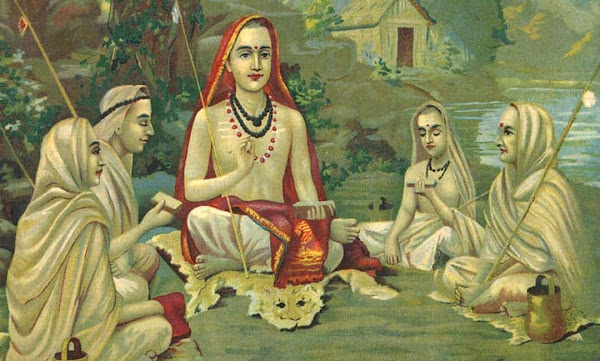"Aham Brahmasmi – The Power of Human Consciousness in a Disturbed World"
Power of Human – Aham Brahmasmi: The Eternal Truth in a Disturbed World
In the heart of chaos, when violence erupts, and humanity questions its very foundation, there arises a need to revisit ancient wisdom. One such phrase from the Upanishads – “Aham Brahmasmi” – meaning “I am Brahman” or “I am Divine,” holds unparalleled relevance today, particularly in the wake of incidents like the recent Phalgam attack.
What Does "Aham Brahmasmi" Mean?
Originating from the Brihadaranyaka Upanishad, this Mahavakya (great saying) signifies the non-dualistic essence of Advaita Vedanta, declaring the identity of the individual self (Atman) with the ultimate cosmic reality (Brahman). It speaks not of arrogance but of empowerment – the realization that the divine exists within, not outside. Every human being is a manifestation of the same universal consciousness.
In today's fragmented society, where violence stems from division, ego, and ignorance, this truth reminds us of our shared divinity, interconnectedness, and the futility of hatred.
Post-Phalgam Attack: Where Do We Go From Here?
The tragic attack in Phalgam has left a nation grieving, questioning, and searching for answers. Beyond political, military, or administrative responses, there is a deeper need for soulful decision-making – one that doesn’t stem from reactionary anger, but from spiritual strength, clarity, and unity.
This is where the wisdom of Adi Shankaracharya, the proponent of Advaita Vedanta, becomes crucial.
Adi Shankara: The Guiding Force
Adi Shankaracharya, a sage from the 8th century, revived spiritual India at a time when confusion, ritualism, and division had clouded the nation. His core message – that truth is one, eternal, and undivided – is what the modern mind needs today.
His relevance in today’s decision-making:
Clarity Over Chaos: Just as Shankara dissolved religious confusion with clarity of thought, modern leaders and citizens need discernment (viveka) to act with wisdom, not impulse.
Detachment for Just Action: His teachings emphasize detachment (vairagya), not indifference, but freedom from personal bias – a quality vital in making fair, non-polarized decisions.
Oneness Over Division: At a time when humanity is segmented by identity, religion, or nation, his emphasis on non-duality can heal wounds created by 'the othering'.
Bhaja Govindam: A Song for the Soul
One of his most accessible works, Bhaja Govindam, also known as Moha Mudgara (remover of delusion), addresses the everyday human condition. Written in response to a scholar's obsession with grammar while forgetting life's impermanence, Shankara urged:
“Bhaja Govindam, Bhaja Govindam, Govindam Bhaja Mudha Mate”
"Worship Govinda (the Divine), O fool, for when the hour of death approaches, grammar rules will not save you."
How Bhaja Govindam speaks to today's world:
Material Madness vs Spiritual Anchoring: In an age of consumerism, conflict, and social validation, Shankara’s call to focus on the eternal is a wake-up call.
Ego and Identity Crisis: In our reactive world, people are imprisoned by labels – religion, caste, political ideology. Bhaja Govindam gently mocks these illusions, asking us to rise above them.
Impermanence and Acceptance: The song reminds us of life's transient nature – a powerful message for those grieving or retaliating after tragedies.
How Can We Apply This Today?
Spiritual Education in Policy-Making: Ethical decisions must be informed by values rooted in oneness, not divisiveness.
Empowering Citizens Spiritually: Let Aham Brahmasmi be taught not just in scriptures but in schools, leadership programs, and healing circles.
Healing Through Consciousness: Trauma after attacks can be met not just with therapy, but with introspection, meditation, and Jnana (knowledge) inspired by Shankara.
Conclusion: The Power of Human
“Aham Brahmasmi” is not just a philosophical statement – it is a call to awaken. In every child, soldier, leader, and victim, there exists a divine spark. Recognizing this can transform how we respond to violence, grief, and division.
In a post-Phalgam world, let us not merely seek revenge. Let us seek realization. Let our decisions be led not by wounds but by wisdom – the timeless wisdom of Adi Shankara, whose flame still burns, guiding a nation, reminding us.
“You are not this name, this body, or this mind. You are Brahman. Live like it.”




Comments
Post a Comment